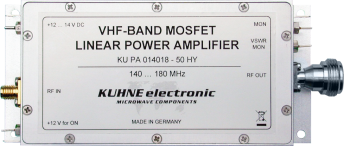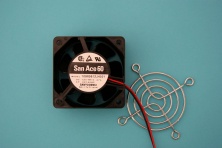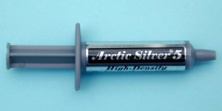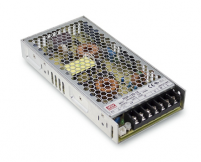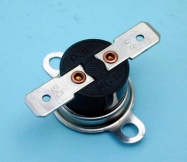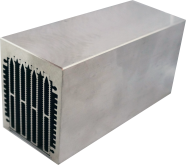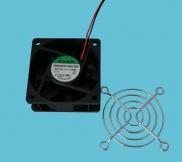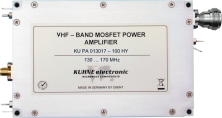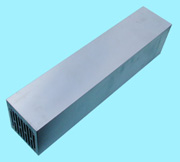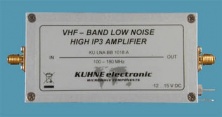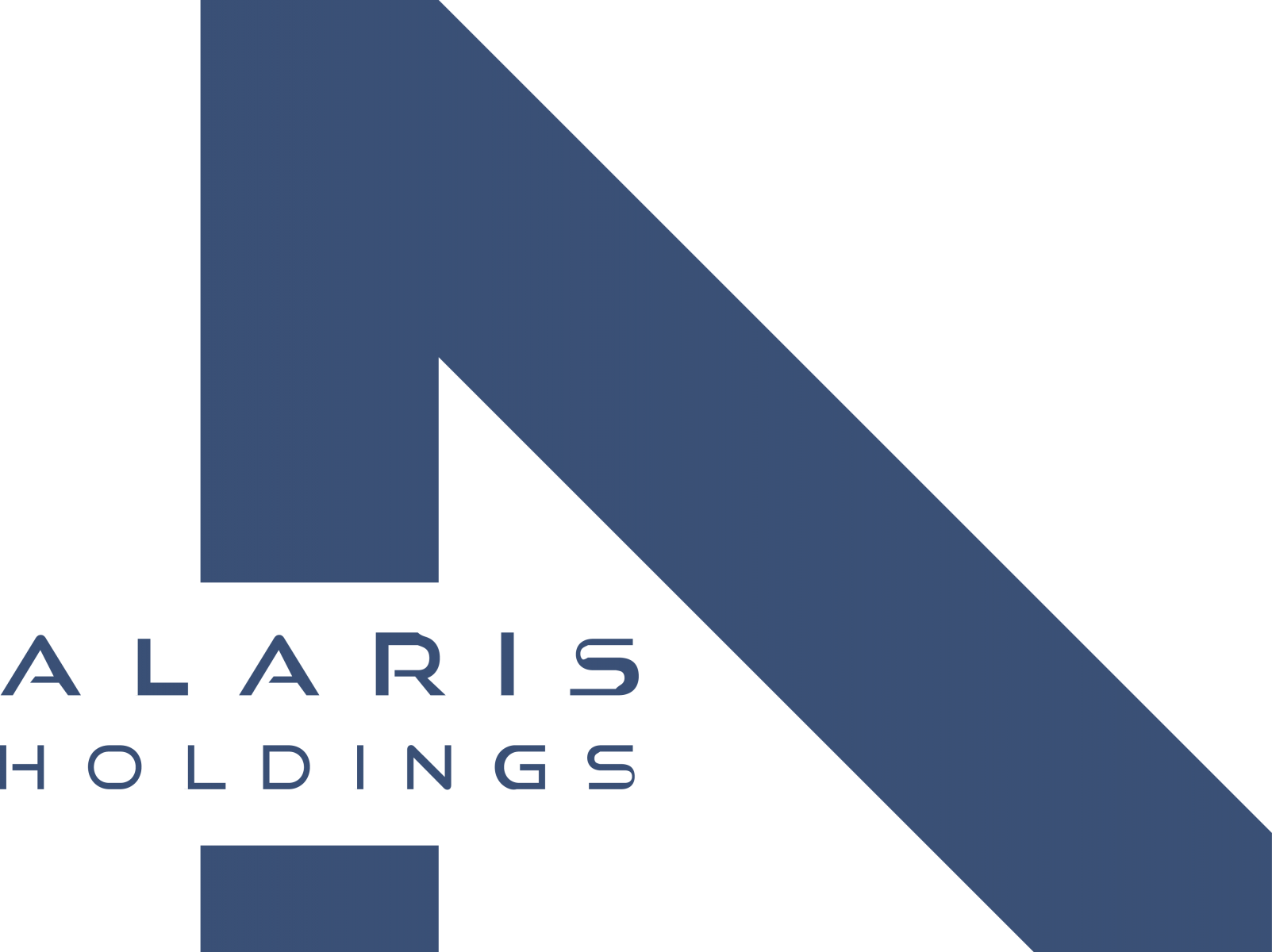KU PA 014018-50 HY, RF Power Amplifier
140 ... 180 MHz • 50 W
Lead time on request
Technical specifications
| Frequency range | 140..180 MHz |
| Input power for P3dB | min. +12 dBm |
| Maximum input power | +17 dBm |
| Output power P3dB | typ. 47 dBm, min. 46.5 dBm |
| typ. 50 W, min. 45 W | |
| Gain (small signal) | typ. 36 dB, min. 34 dB |
| Gain flatness (small signal) | typ. +/- 3 dB |
| Harmonic rejection | typ. 50 dB @ 47 dBm |
| IM3 (1) | min. 20 dBc @ 43 dBm PEP |
| Efficiency | min. 30 % @ 47 dBm (CW) |
| Input return loss (S11) | typ. 10 dB |
| ON voltage | +12 V DC |
| Supply voltage | +12 ... 14 V DC |
| Quiescent current | typ. 4 A |
| Current consumption @ P3dB | max. 12 A |
| Forward detection | yes (diode detector) |
| Reflected power detection | yes (diode detector) |
| Operating case temp. range | -20 ... +55 °C |
| VSWR of load | max. 1.8 : 1 |
| Input connector / impedance | SMA-female / 50 ohms |
| Output connector / impedance | N-female / 50 Ohms |
| Case | milled aluminium |
| Dimensions (mm) | 130 x 60 x 20 |
| Weight | 270 g (typ.) |
| (1) | Measured 2-tone, frequency spacing: 1 MHz |
Features
- Built-in low pass filter for good harmonic rejection
- Reverse polarity protection
- Monitor outputs for forward and reverse power detection
Applications
- Analog transmission systems
Important notes
Please notice the following:
- All technical data specified at a supply voltage of 14
- The power amplifier doesn’t contain any coaxial relays.
- The recommended combination of heat sink and fan(s) is only specified for an ambient temperature of 25 °C.
- Further information about dimensioning of heat sinks is available on our FAQ site. V DC at room temperature
Downloads
Accessories
References
One of the critical key components of a wireless system is the low-noise amplifier (LNA). The LNA, usually connected close to the antenna, takes the weak radio-frequency (RF) signal from the antenna and amplifies it. The main function of the pre amp is to increase the amplitude of the receiving signal without adding much noise and distortion, in other words, to nearly maintain the signal to noise ratio (SNR) of the desired RF signal. The main characteristics of the low noise preamplifier are noise figure (NF), gain, and linearity. KUHNE electronic provides a variety of high quality low-noise and ultra low-noise amplifiers, covering frequency bands L, S, C, X, K, frequency selective and broadband. The functional bandwidth varies from several MHz to about 20 GHz. The website-filter on the product page can be used to refine your search results by frequency range, gain, noise figure and supply voltage. The broad portfolio of KUHNE RF LNAs offers high performance including low noise figure (NF), high gain, high linearity and small power consumption, therewith supports the customers in many different use cases and scenarios, e.g., high and low bandwidth applications, in commercial usage as well as for lab experiments and research. Several application examples are given as follows: the 2 GHz UHF broadband low noise amplifier KU LNA BB 2227 A can be used in the RF front end of a multitude of wireless standards in the ISM band, like UMTS, bluetooth, radar, or 2.4 GHz Wi-Fi, e.g., supporting the communication and video transportation in sports events. Another example is the 5-6 GHZ RF linear preamp KU LNA 5059 A, which is needed in IEEE 802.11a/n/ac Wi-Fi systems operating in the 5.1-5.85 GHz range. Other applications like Automatic Dependent Surveillance Broadcast (ADS-B): KU LNA 1090-2 A, Multichannel Multipoint Distribution Service (MMDS): KU LNA BB 2227 A, Radio astronomy: KU LNA 142 AH, Satellite Communication (Satcom) systems: KU LNA 152 AH and so on can be found in the product descriptions. KUHNE electronic also focuses on the dynamic demands of markets and provides most up-to-date customized solutions. We offer low-noise amplifiers (LNAs) with special features, such as different connector types (SMA, N, Waveguide, and many more), remote power supply via coaxial cable, waterproof cases and so on. Our professional RF products and components enable optimum measure, test, and field application experience.



